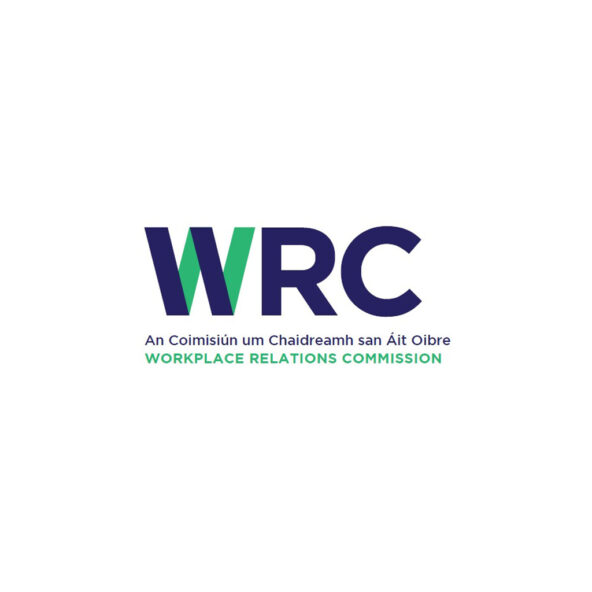What is Race discrimination?
Race Ground
Race includes skin colour, nationality, ethnic or national origin.
Discrimination on the Race ground happens if someone treats you less favourably because you have a different skin colour, nationality or ethnicity to someone else.
What is Race Discrimination in education?
Discrimination on the ‘race ground’ occurs where there is less favourable treatment of one person compared to another person because one person is of different race, colour, nationality or, ethnic or national origins than the other person.
Schools must not discriminate against a pupil or student because of their race in relation to:
- The admission or the terms or conditions of admission to the school
- Access to any course, facility or benefit at the school
- Any other terms or conditions of participation in the school
- Expulsion or any other punishment or penalty
What law protects me against discrimination in education?
The Equal Status Acts protect me against discrimination in education.

What's covered under the ESA?
The ESA ban discrimination, harassment and sexual harassment in the sale or provision of goods and services, housing services and access to education.
In particular, schools must not discriminate against a pupil or student because of their age in relation to:
- The admission or the terms or conditions of admission to the school
- Access to any course, facility or benefit at the school
- Any other terms or conditions of participation in the school
- Expulsion or any other punishment or penalty

What is meant by an educational establishment?
Educational establishments include pre-school services, primary or post-primary schools, adult, continuing or further education and university or other third level institutions.
They include public and private educational establishments.

You can experience discrimination in four different ways.
Direct discrimination
Where someone treats you less favourably than another person in a similar situation because of a different personal characteristic or circumstance that falls under the protected grounds.
Indirect discrimination
Where a policy or provision applying to everyone puts you at a disadvantage because of a personal characteristic or circumstance that falls under the protected grounds.
Discrimination by imputation
Where someone treats you less favourably than another person in a similar situation because they have incorrectly assumed (‘imputed’) that you fall under the protected grounds.
Discrimination by association
Where you are treated less favourably than another person in a similar situation because of your connection or relationship with someone who falls under the protected grounds.
Under Irish law, the protected grounds are:
Gender (male, female, transgender or nonbinary)
If someone treats you less favourably because you are a different gender to someone else.
Civil status (single, married, separated, divorced, widowed or in a civil partnership)
If someone treats you less favourably because you have a different civil status to someone else.
Family status (being pregnant, a parent, an acting parent of a child, or a carer of a person with a disability who requires continued care)
If someone treats you less favourably because you have a different family status to someone else. (Note: some situations falling under this ground may also fall under the gender ground.)
Sexual orientation (heterosexual, homosexual or bisexual orientation)
If someone treats you less favourably because you have a different sexual orientation to someone else.
Age (only applies to people aged 18 years and over)
If someone treats you less favourably because you are older or younger than someone else and it is without a good reason (‘objective justification’). (Note: this ground does not cover alleged discrimination against children in schools.)
Religious belief (including religious background and those who have no belief)
If someone treats you less favourably because you have a different religion to someone else, or, for example, because you do not have a religion and someone else does.
Membership of the Traveller community
If someone treats you less favourably because you are a member of the Traveller community and someone else is not.
Race (skin colour, nationality, ethnic or national origin)
If someone treats you less favourably because you have a different skin colour, nationality or ethnicity to someone else.
Disability (intellectual, mental and/or physical disability)
If someone treats you less favourably because you have a disability and someone else has a different disability or does not have a disability.
Under the disability ground, please also see information on disability and reasonable accommodation.
If you are trying to access housing or accommodation, there is one extra protected ground:
Housing assistance (including housing assistance payment (HAP), rent supplement or another social welfare payment)
If someone treats you less favourably because you are receiving rent supplement, housing assistance payment (HAP) or another type of social welfare payment and someone else is not.
Exceptions and Exemptions
There are several significant exemptions that apply to people who attend at, or are in charge of, educational establishments.
These exemptions should be read restrictively and should not be allowed to restrict unduly the general prohibition on discrimination.
General exemptions relating to universities, third level or adult educational institutions
Public authorities can treat certain nationals of other countries differently, on the basis of their nationality, who are outside the State or unlawfully present in it (for the purposes of the Immigration Act 2004) or in accordance with any provision or condition made by or under any enactment, and arising from his or her entry to or residence in the State.
The Equal Status Acts allow for universities, or higher level institutions to offer assistance to particular categories of persons, by way of sponsorships, scholarships, bursaries or other awards which are justifiable, having regard to traditional and historical considerations.
In relation to the allocation of places, universities or other higher-level institutions can select particular students to take part in exchanges with universities outside the jurisdiction.
Exemptions on the race (nationality) ground that apply to universities, third or higher level or, adult education.
The Equal Status Acts allow for the Minister for Education and Science to treat Irish citizens and EEA nationals differently compared to persons who are not, in relation to accessing education grants to assist persons who wish to attend universities, third level institutions and other adult education.
The Equal Status Acts allow for universities and other higher level institutions to treat Irish citizens and EEA nationals differently compared to persons who are not Irish citizens or EEA nationals in relation to admissions fees, attendance, and allocation of places.
Who can I complain to?
The WRC is the body responsible for deciding on claims of discrimination in the first instance.
Complaints under the Employment Equality Acts and the Equal Status Acts are made to the Workplace Relations Commission (WRC).
The WRC deals with claims related to employment and to services or goods.
Gender discrimination claims can go to either the Circuit Court or the WRC.

What are the time limits for taking a case?
You should consider a number of important deadlines when planning to bring a complaint under the Equal Status Acts.
First you must tell the respondent about the incident of discrimination and that you intend to make a complaint about them to the WRC. The goods or service provider who discriminated against you are called the respondent.
You cannot take a case to the WRC under the ESA unless you have contacted the respondent and given them time to reply. You have two months from the last date of discrimination to tell the respondent about the incident of discrimination and that you intend to make a complaint to the WRC.
In exceptional circumstances, the WRC may extend this period of two months by another two months. This brings the maximum time limit for notifying the respondent to four months. The WRC very rarely allows this extra time.
After notifying the respondent, you should receive a reply within one month. If you get no reply within that time, or if you get a response that you are not satisfied with, you may then bring the complaint to the WRC. You should use the WRC Complaint Form.
You must submit the complaint within six months of when the alleged discrimination took place or, if it happened several times, within six months of the last date of discrimination. Very occasionally, the WRC may extend this time limit from six months to 12 months. It does this very rarely.
Ongoing discrimination
In many cases, only one act of discrimination occurs. This makes it easy to work out when the six-month time period for bringing a complaint begins.
However, in other cases discrimination may continue over a lengthy period. This is known as ‘ongoing discrimination’ or a ‘continuing breach’.
If ongoing discriminatory practices stop, you have six months from the date they stopped to complain to the WRC. A shopkeeper has a sign in their window banning all dogs, including guide dogs, from entering the shop. Then they remove the sign and allow people with guide dogs to enter. This means that the six-month time limit for bringing a complaint starts from the day they remove the sign.
Some situations are not so clear-cut. Sometimes significant gaps will occur between discriminatory actions or practices. This makes it more difficult to determine whether there is a ‘continuing breach’.
In these instances, there may be a series of separate things that are done, or not done, which result in discrimination. If so, one or more instances of discrimination may be outside the six-month time limit. But where the discrimination is sufficiently connected to discrimination that did fall within the time limit, it may be possible to consider them as part of a ‘continuum’. It is important to be cautious. Different people may have different ideas about whether or not there has been a continuing breach.
If you want to complain about your own situation, you should do so as soon as possible to keep within the six-month time limit. Do this even where you believe there may be continuing discrimination, or if you are not sure it is still happening.
Have you experienced discrimination for another reason?
Select the ground and area where you have experienced discrimination

